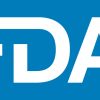Dietary supplements are commonplace in the American diet. Indeed, so many Americans expect supplements to do most of the heavy nutritional lifting in their diets that “substitute” might be a more accurate name. But while many consumers view supplements as a magic bullet or cure-all, and supplement manufacturers happily reinforce that viewpoint through their labeling, the FDA does in fact set limits on the types of statements that supplement manufacturers may make. To ignore those limits is to run the significant risk of receiving a warning letter from FDA. Warning letters are made public, and being on the receiving end of one can damage a manufacturer’s brand. In February 2021, FDA announced that it had recently sent warning letters to ten supplement manufacturers who were claiming that their products could treat or cure depression and other mental health disorders.
No dietary supplement, no matter how effective it is, may contain labeling that claims to “diagnose, mitigate, treat, cure, or prevent” disease. Labeling is a broad term. It doesn’t just apply to the physical label affixed to the container. It also applies to marketing materials accompanying the supplement, or to statements made on the website selling the supplement. FDA explains what types of statements will be considered improper drug claims in 21 CFR 101.93(g). A statement will be considered an improper drug claim if it claims, explicitly or implicitly, that the product has an effect on a specific disease or class of diseases, or on their characteristic signs or symptoms, or on an abnormal condition associated with a natural state or process, if that abnormal condition is uncommon or can cause significant or permanent harm.
A statement will also constitute an improper drug claim if it claims that the product: belongs to a class of products intended to “diagnose, mitigate, treat, cure, or prevent” disease; is a substitute for a product that is a therapy for a disease; augments a particular therapy or drug; has a role in a body’s response to disease; treats, prevents or mitigates adverse events associated with a particular drug or therapy, if that adverse event is in itself a disease; or otherwise suggests an effect on a disease.
So how can a dietary supplement manufacturer promote the health benefits of its products if it can’t make any of these types of claims? Broadly speaking there are three types of claims that will not violate the regulations: 1) classical nutrient deficiency claims; 2) structure-function claims; and 3) FDA-approved health claims. Let’s look at each of these in turn.
A classical nutrient deficiency is a disease or condition caused by a deficiency in a particular nutrient. Diseases such as pellagra and scurvy fall into this category. Dietary supplement labeling may inform consumers that use of the product can cure or prevent classical nutrient deficiencies if the manufacturer provides notice to the FDA that complies with the requirements in 21 CFR 101.93(a) within 30 days of first marketing the product, and if the product bears the following disclaimer: “This statement has not been evaluated by the Food and Drug Administration. This product is not intended to diagnose, treat, cure, or prevent any disease.” Section 101.93(b)-(e) contains specific requirements about the placement and prominence of the disclaimer.
Structure-function claims are also permissible. These types of claims suggest an effect of the product on the body’s normal structure or function. Emphasis here is on the use of the word normal. So, rather than saying, for example, “this product prevents heart disease,” which is an obvious example of an improper drug claim, the labeling could state, “this product helps promote healthy heart function.” Like classical nutrient deficiency claims, however, the manufacturer must provide the required written notice to FDA within 30 days, and also include the disclaimer language.
The third type of permissible claim is an FDA-approved health claim. Manufacturers can find such approved claims at 21 CFR 101.72-83. An example of the type of health claim that is permissible would be a claim linking vitamin D or calcium to reduced risk of osteoporosis. But if the FDA hasn’t approved a claim, manufacturers may not make that claim, even if the science shows it is true. If a manufacturer believes that the science supports the use of ginger root for reducing symptoms of Crohn’s Disease, for example, it may not make any such claim, even if it is true, without petitioning FDA to approve such a claim.
While it is true that dietary supplements are regulated with more leniency than regular foods, this is not a license to sell unapproved drugs. Supplement manufacturers would be well advised to have their marketing folks work closely with legal counsel to craft labeling language that promotes the benefits of the product while staying within the FDA’s guardrails.







